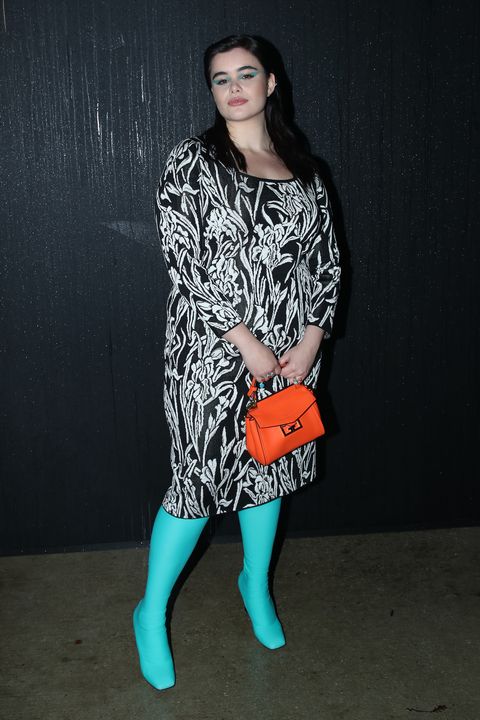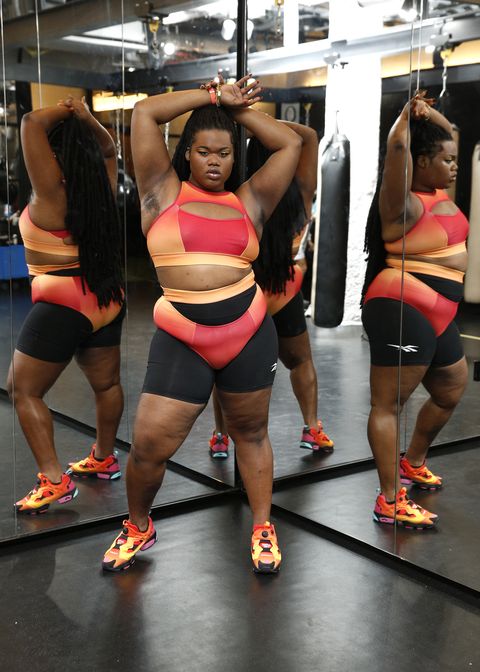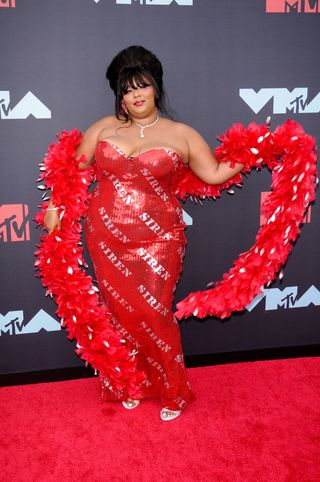As people who are lucky enough to be able to work from home slide into their 12th week of doing so, certain fashion standbys are starting to feel as remote as a matinee with a large popcorn or a night out at a crowded bar. I’m talking about jeans and all other “hard pants,” anything resembling a bra, and shapewear in all its forms. Bring on the sweat shorts and yoga pants, and, while you’re at it, add another caftan to my cart.
Of course, one person’s high-waisted denim prison is another person’s comfy work-from-home attire, but the general tenor seems to have shifted from “Will we ever go back to these things again?” to “No, and who were we really dressing for, anyway?”
This content is imported from Twitter. You may be able to find the same content in another format, or you may be able to find more information, at their web site.
This content is imported from Twitter. You may be able to find the same content in another format, or you may be able to find more information, at their web site.
This content is imported from Twitter. You may be able to find the same content in another format, or you may be able to find more information, at their web site.
WFH style has only accelerated a larger push towards comfort that was already brewing for the better part of a decade. It’s affecting not just the clothes we choose to wear but the armor we put under them: padded, underwired bras and shapewear of all kinds. The movement has, of course, been pushed forward by body-positive bloggers and influencers posting unfiltered shots on social media. But even fashion’s most airbrushed domain, the red carpet, started showing signs of change before the pandemic began. Once, stars in E! interviews self-deprecatingly discussed how many pairs of Spanx they were wearing under their gowns; more recently, young celebrities like Barbie Ferreira have shown a proud distaste for society’s dictation that they smooth, pinch, or otherwise mold themselves to meet an impossible standard.
While there are outliers—Kim Kardashian West’s hit SKIMS line comes to mind—for a cohort of Gen Z influencers and celebrities, trying to artificially alter your body feels as passé as posting an obviously FaceTuned selfie.
Says Marisa Meltzer, whose book This Is Big juxtaposes the story of the founder of Weight Watchers with Meltzer’s own ambivalent feelings about body positivity, “There’s so much pressure societally to be body positive or to get real, especially via social media, that shapewear feels kind of antithetical to that.”
On the runway, too, the mood is changing—though more incrementally. At Chromat’s fall 2020 show, models of all sizes wore fitted neon workout clothes, flaunting cellulite, body hair, strong muscles, and curvaceous bellies. Chromat designer Becca McCharen Tran, whose shows have long been a bastion of body diversity, thinks that remote-work culture and quarantine will make people question the fashion status quo. “Once people experience truly being comfortable and being able to move however they want, they realize that some things they have done in the past were just to assimilate and it doesn’t have to be that way,” she says. “They can make their own rules.”
Of course, some argue that shapewear doesn’t have to be disempowering—that, when used in a certain way, it can actually be the reverse. One of those making the case is stylist Marko Monroe, who works with Lizzo. He incorporates shapewear to “emphasize curves, to emphasize parts of the body that didn’t used to be celebrated,” he says. For Lizzo’s VMA’s look, a bodacious Moschino gown, “the whole shape was achieved with this beautiful corset that was underneath,” he says, calling it a “swerve ‘n’ curve moment.” He feels that it’s all of a piece with the message of celebrating yourself: “Why not architect your body in a way you feel good about?”
Still, the majority of people are not going to rush back into confining silhouettes anytime soon. Asked if she’s approaching fashion differently right now, McCharen Tran laughs. “I don’t even know if I’m approaching fashion right now.”
Adds Meltzer, “Once you stop wearing shapewear I think you immediately wonder what the point is.” Though, she admits, “I do own one item of shapewear and wear it probably three times a year? I wore it in recent author photos to give my body a little bit of a smoother line under a jersey dress or in a thin sweater. No regrets!”
This content is created and maintained by a third party, and imported onto this page to help users provide their email addresses. You may be able to find more information about this and similar content at piano.io



